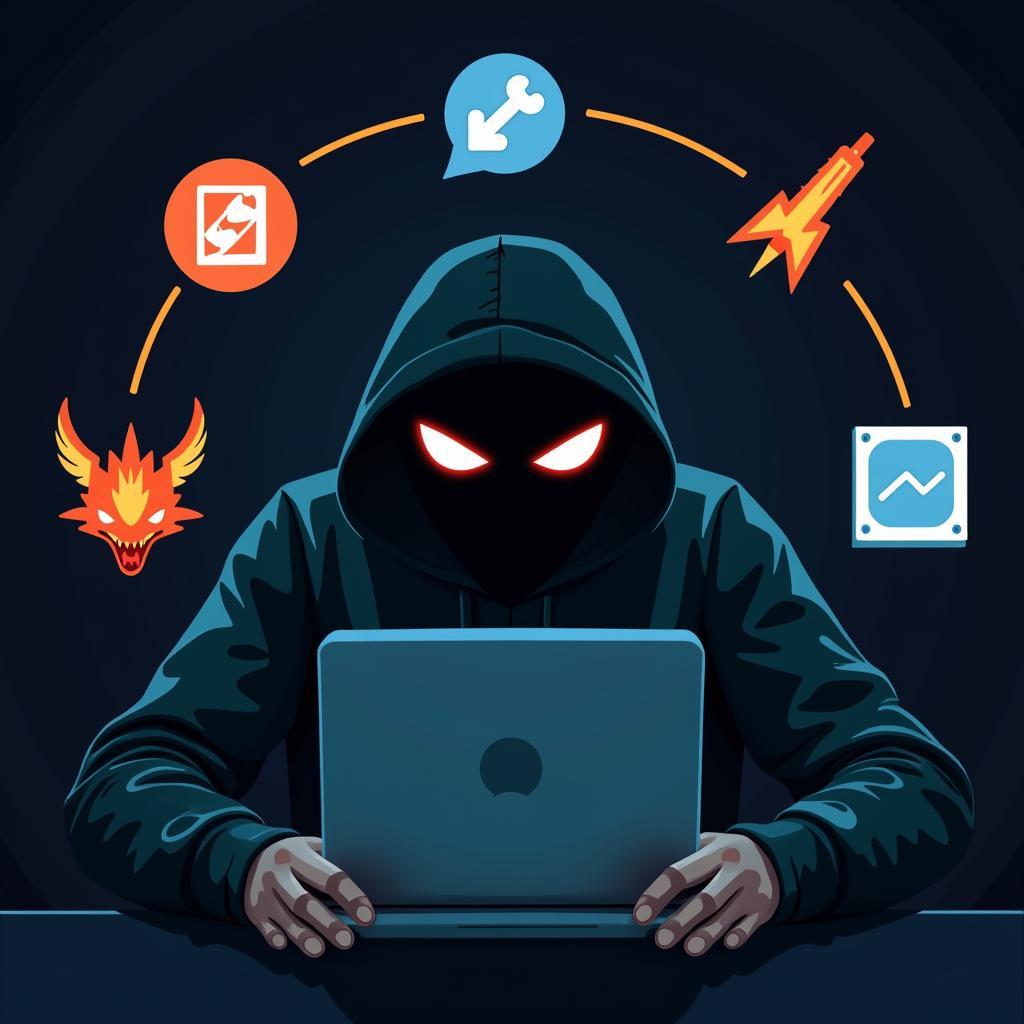The question “Do Cheaters Come Back?” echoes through the minds of countless gamers who have fallen victim to unfair play. It’s a question rooted in frustration, a desire for justice, and perhaps even a glimmer of hope that these digital transgressors might mend their ways.
 Cheaters in online gaming
Cheaters in online gaming
The Allure and Consequences of Cheating
Before we delve into the return of cheaters, it’s crucial to understand why they cheat in the first place. The allure of an unearned victory, the desire for an unfair advantage, and the thrill of exploiting loopholes all contribute to this digital plague. However, the consequences can be severe. Cheaters tarnish the gaming experience for others, erode trust within the community, and ultimately face repercussions like account bans and reputational damage.
The Cycle of Cheating and Reform
The path of a cheater isn’t always linear. Some may experience a fleeting brush with dishonesty, regret their actions, and permanently abandon their deceptive ways. Others, however, fall into a cycle of cheating and apparent reform. They might face a temporary ban, only to resurface with a new account, their desire to cheat undeterred. This cycle can be attributed to several factors:
- Lack of meaningful consequences: If bans are too lenient or easily circumvented, cheaters face little disincentive to return.
- The addictive nature of winning: The rush of an unfair victory can be intoxicating, driving some players to seek that thrill repeatedly.
- A sense of entitlement: Some cheaters rationalize their behavior, believing they deserve special treatment or an easier path to success.
Combating the Persistence of Cheaters
While the return of cheaters can be disheartening, the fight for fair play is far from over. Game developers and communities are continually working to combat this issue through:
- Robust anti-cheat systems: Developers are constantly improving their anticheat measures, employing advanced algorithms and machine learning to detect and prevent cheating in real-time.
- Community reporting: Players are encouraged to report suspected cheaters, providing valuable data that aids in identifying and penalizing offenders.
- Educational initiatives: Some platforms promote fair play through educational campaigns, aiming to foster a culture of respect and integrity within their communities.
Can Cheaters Truly Change?
While the potential for reform exists, the reality is that changing a cheater’s mindset can be challenging. It requires a genuine desire to change, a commitment to fair play, and an understanding of the detrimental impact of their actions. However, some reformed cheaters become staunch advocates for ethical gaming, using their experiences to deter others from following the same path.
 Gamers celebrating a victory with sportsmanship
Gamers celebrating a victory with sportsmanship
What Can You Do?
As a gamer, you have a role to play in combating cheating:
- Never cheat: It might seem obvious, but the first step is to ensure you’re not contributing to the problem.
- Report suspected cheaters: Don’t hesitate to report suspicious activity, providing evidence if possible.
- Promote fair play: Encourage ethical gaming within your own circles, fostering a culture of respect and sportsmanship.
FAQ
Q: Why do people cheat even if they know they’ll get caught?
A: Some cheaters prioritize immediate gratification over long-term consequences. They may underestimate the likelihood of being caught or believe they can create new accounts to avoid bans.
Q: Is cheating becoming more common in online games?
A: The prevalence of cheating can fluctuate depending on the game, platform, and effectiveness of anti-cheat measures. However, developers and communities are constantly working to combat this issue.
Q: Can I get in trouble for falsely reporting someone for cheating?
A: While policies vary, most platforms take false reporting seriously. It’s crucial to report suspected cheating in good faith and provide evidence if possible.
Looking Ahead: A Future of Fair Play?
The battle against cheating in online games is ongoing. While there will always be players seeking an unfair advantage, the collective efforts of developers, communities, and ethical gamers can create a more balanced and enjoyable playing field. By promoting fair play, reporting suspicious activity, and supporting robust s-patch systems, we can collectively strive for a future where the question “do cheaters come back?” is met with a resounding “not for long.”
Need assistance? Contact us at Phone Number: 0902476650, Email: [email protected], or visit us at 139 Đ. Võ Văn Kiệt, Hoà Long, Bà Rịa, Bà Rịa – Vũng Tàu, Việt Nam. Our customer support team is available 24/7.





